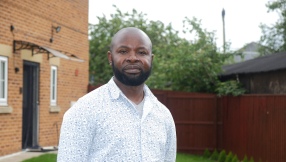Vatican: Pope Meeting Doesn't Alter Policy on Jews
The statement followed a meeting at the weekend between the Pope and Father Tadeusz Rydzyk, who publicly apologised last month after accusing a "Jewish lobby" of trying to extract millions from the Polish state.
Jewish rights groups condemned the meeting and called on the Pope to denounce Rydzyk and his Radio Maryja, which they accuse of spreading xenophobic, anti-Semitic statements.
The Vatican did not address those demands in its one-line statement, saying only that Rydzyk's widely reported kiss of the German-born Pontiff's hand had no broader implications.
The Vatican said: "In reference to requests for clarification related to (Father) Tadeusz Rydzyk's 'kiss' ... the matter does not imply any change in the Holy See's well-known position on relations between Catholics and Jews."
There was no immediate reaction from Jewish groups.
Poland had the biggest Jewish population in Europe until World War Two, but the murder of millions in the Holocaust under German occupation and an anti-Semitic campaign by post-war communist authorities left only a few thousand in the country.
Israel's ambassador to Warsaw called on Poland and the Catholic Church last month to take action against Rydzyk's Radio Maryja for spreading anti-Semitism, saying it had repeatedly insulted Jews and their culture.
The Pope's meeting with Rydzyk appeared to do the opposite by giving him added legitimacy, Jewish groups said.
"You have unfortunately lent him the priceless credibility of your office and integrity in the eyes of the world," Abraham Foxman, who leads the U.S.-based Anti-Defamation League, said in a letter to the Pope.
The European Jewish Congress (EJC) said it was shocked by the meeting. It said the Pope had effectively given "his blessing (to) a man and an institution that have tarnished the image of the Polish church".
Some Jewish leaders criticised the Pope's recent decision to revive a Latin-language rite that includes a prayer for the conversion of the Jews. The Pope's number two suggested the controversial prayer could be dropped, a proposal welcomed by the Simon Wiesenthal Centre.
Pope Benedict visited the former Nazi concentration camp Auschwitz last year. He called himself "a son of Germany" and asked why God was silent when 1.5 million victims died there.
Next month, the Pontiff is due to visit a monument for Holocaust victims during a trip to Austria.













